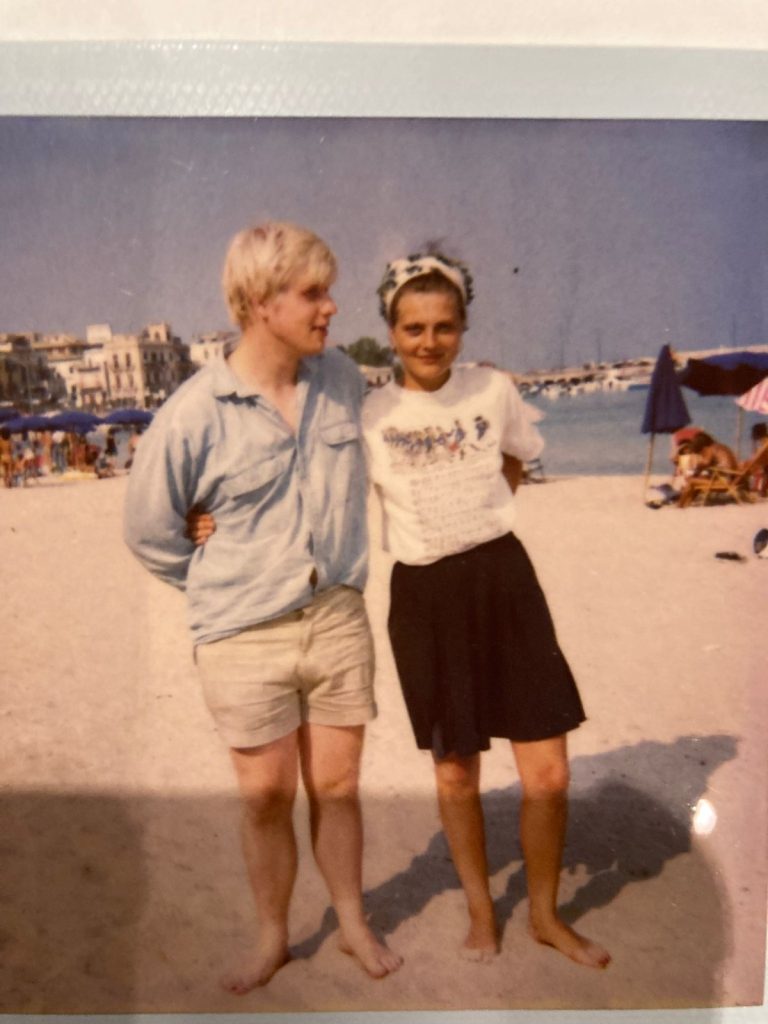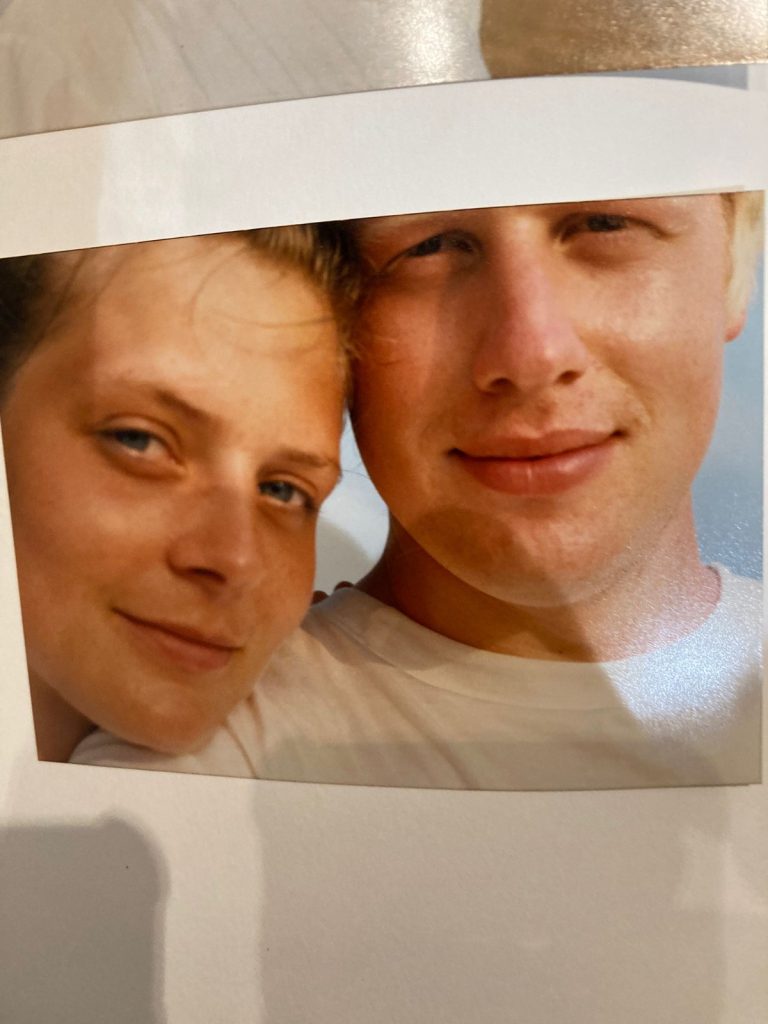By columnist Allegra Mostyn-Owen
Alexander Boris de Pfeffel Johnson remains one of the most colourful figures in British politics. Known for his wit, his fine use of language and occasional bold statements comparable to Winston Churchill (on whom he models himself), Boris carries a complex legacy. But who is the man behind the personae?
When Boris addressed the Minhaj-ul-Quran Mosque in Newham during his tenure as Mayor of London, he endeared himself to the congregation by highlighting his Turkish roots. He spoke of his great-grandfather, Ali Kemal, a hafiz of the Quran, writer, and liberal politician under the Ottoman Empire. For a man with such international heritage, it’s remarkable that Boris became the architect of Brexit, the most seismic assertion of British sovereignty in decades. Brexit brought out all that was most insular in UK society, and Bros told me with regret that he’d lost a lot of old friends over Brexit.
Still, he brought it all upon himself by writing two contradictory editorials for the Telegraph and then plumping for the Brexit one. I don’t think he has any belief apart from self-promotion. This became a major problem in our marriage and our last bust-up was about education policy.
A cosmopolitan heritage
Boris Johnson’s family tree reads like a cross-section of world history. His paternal great-grandfather, Ali Kemal, was a prominent journalist and former foreign minister of the Ottoman Empire. Tragically, Kemal’s life ended in 1922 when he was lynched by a mob during Turkey’s turbulent transition to a republic.
Following Kemal’s death, his widow and young son (Boris’ grandfather, Osman, always known as Johnny -‘never mention Turkey here,’ he told his daughter-in-law, Boris’ mother Charlotte) fled Turkey, reportedly arriving in Canada with no documents. Legend has it that the name “Johnson” was assigned to the family by a border guard who couldn’t handle a Turkish surname. Boris’ paternal grandmother, Irene Williams, added more layers to his heritage. A descendant of the Bavarian De Pfeffel family, she also had French roots, tying Boris to European nobility. On his maternal side, Boris has Jewish lineage through his great-grandfather Elias Lowe, a Lithuanian American scholar of ancient manuscripts. Interestingly, his maternal grandmother later converted to Catholicism, further diversifying Boris’ familial connections.

The English facade
Despite his cosmopolitan background, Boris is quintessentially British in mannerism. His appearance is more exotic. His blondness is highly unusual and derived from a dominant Turkish gene. Stanley has it too with his shock of yellow hair and a number of the grandchildren have all inherited it. In fact, when I left Boris and went back to my mother’s home, she was relieved. ‘Thank god I won’t have little yellow chicks for grandchildren!’ She told me in Italian. She was of the opinion that Boris’ blonde gene came from Circassian janissaries.
Educated at the elite prep boarding school Ashdown House, he earned scholarships to Eton College and later Balliol College, Oxford, where he read Classics. His trajectory through these bastions of privilege has made him appear, to many, the embodiment of Englishness.
Yet, beneath the surface, Boris’ story is far more complex. His international roots and diverse ancestry stand in stark contrast to the nationalism often associated with his political career, particularly his role in the Brexit campaign. How does a man of such global lineage champion a cause perceived by many as insular?

A divisive legacy
As Prime Minister, Boris Johnson led Britain through the final stages of its withdrawal from the European Union. His tenure saw the signing of the Brexit deal, a controversial and deeply divisive move that remains the subject of heated debate. Critics accuse him of exploiting nationalist sentiment, while supporters hail him as a leader who delivered on the will of the people.
Ironically, Boris’ cosmopolitan heritage could have made him a bridge-builder in a globalised world. Instead, his political career has often centred on divisions—whether in Brexit, his handling of the COVID-19 pandemic, or his leadership of the Conservative Party. His experience of politics at the Oxford Union when a student appears to have trained him in backstabbing and plotting, little else.
Yet, there’s no denying Boris’ charisma. Whether cycling through London as Mayor or making quips in the House of Commons, he has a knack for commanding attention.
Why hasn’t Boris come back?
As of now, Boris remains absent from the political scene. Some speculate that he is waiting for the right moment to stage a comeback and is meanwhile earning heaps of cash on the American lecture tour and also with his surprisingly successful. Others believe his time in politics has ended, with his legacy sealed as the man who “got Brexit done.
But perhaps the real question is not about his return, but what his career says about Britain. Boris Johnson is a man of contradictions—a global citizen who championed national sovereignty, a descendant of immigrants who led a country wrestling with its identity in the modern world.
In the end, Boris Johnson’s story is not just about one man. It’s about a country grappling with its place in the world, its history, and its future. Whether he returns to the spotlight or not, Boris has already left an indelible mark on British politics and culture. In my mind, he has been very destructive: he has nearly destroyed his party and his country, and he has certainly destroyed important relationships with the women in his life. I remain unsettled by his illegitimate daughter Stephanie MacIntyre whose mother had to battle for recognition as far as I know.
What do you think? Can Boris return to politics, or has his era come to an end? When he came to power with such an overwhelming majority, my husband Majid remarked he’d last 10 years. I demurred, knowing all too well that Boris would somehow be the architect of his own downfall. His life and career provoke questions not just about leadership but about what it means to be British in the 21st century.
email us: press@westferrytimes.com







